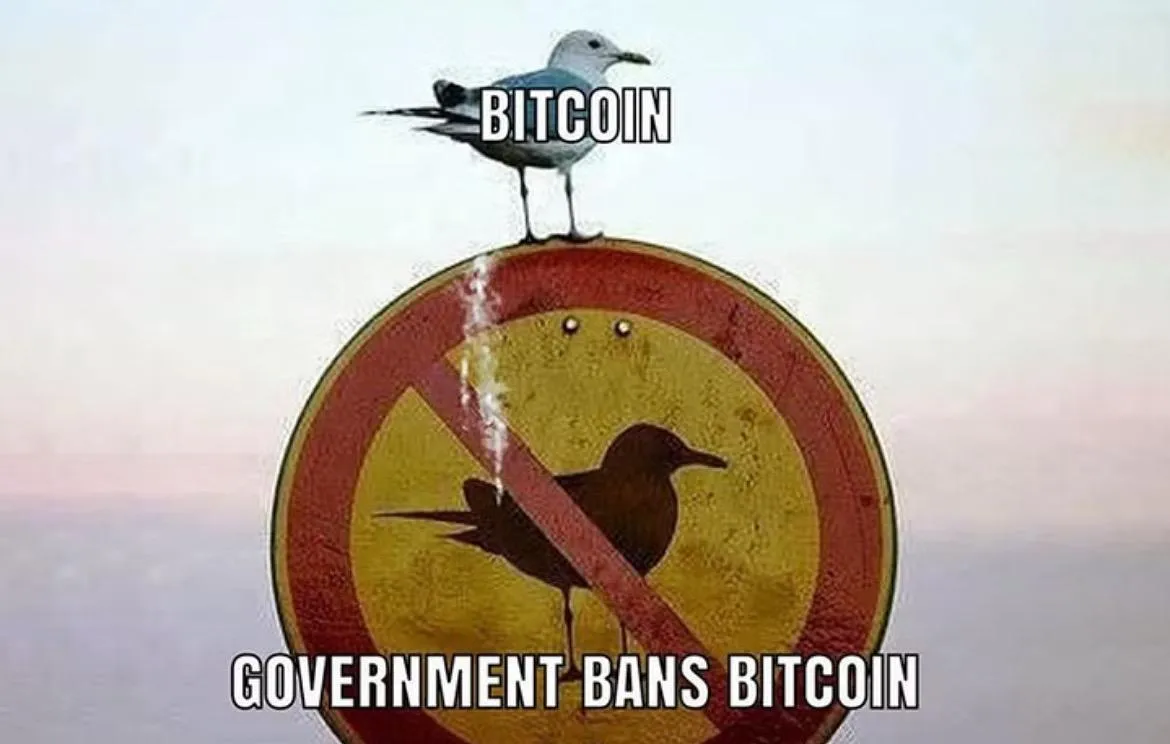
Will Governments Ban Bitcoin? Here’s Why They Can’t (And Won’t)
“What if governments just ban it?”
That question comes up in nearly every skeptical conversation about Bitcoin.
It’s a fair concern. After all, governments banned gold. They ban cash transactions. They censor bank accounts. So why wouldn’t they try to stop a decentralized money they can’t control?
Here’s the truth: some will try. Some already have. But Bitcoin isn’t just hard to ban—it’s becoming harder every day. And eventually, governments won’t just tolerate it…
They’ll depend on it.
Bitcoin Can’t Be Banned. Only Abandoned.
Let’s start with the technical reality: you can’t ban Bitcoin.
Why? Because:
It’s software.
It’s decentralized.
It runs on thousands of nodes globally.
You can transact via satellite, mesh network, radio, or even paper.
Banning Bitcoin is like banning math. Or banning the internet. You can outlaw access points—but the protocol lives on.
Even China, which has banned Bitcoin mining multiple times, couldn’t stop people from using it. In fact, China still ranks among the top nations in Bitcoin usage today.
Historical Precedent: Banning Doesn’t Work
Let’s look at past attempts:
China: Banned mining, but miners moved abroad. Banned exchanges, but users turned to peer-to-peer.
Nigeria: Banned bank connections, but adoption skyrocketed through alternative apps.
India: Floated a total ban… then reversed course.
U.S. (1933): Even gold was banned—but it eventually returned as a respected asset class.
When you ban something people want—and need—they don’t give up. They go underground. And in the digital age, underground just means permissionless.
The Game Theory of Bitcoin Adoption
Here’s where it gets interesting: game theory.
If one country bans Bitcoin, others can benefit by staying open:
Attracting capital
Encouraging innovation
Serving as safe havens for Bitcoin entrepreneurs and miners
We’ve already seen this:
The U.S. became a mining hub after China’s ban.
El Salvador adopted Bitcoin as legal tender and is seeing investment, tourism, and energy development.
Countries like Switzerland, Singapore, and the UAE are welcoming Bitcoin infrastructure with open arms.
As Lyn Alden notes, “Incentives are stronger than edicts.” You can’t ban yourself from the future without consequences.
What About CBDCs?
Central Bank Digital Currencies (CBDCs) are often framed as a threat to Bitcoin.
But here’s the irony: CBDCs legitimize the concept of digital money. They train billions of people to use digital wallets and think in digital units. And that creates fertile ground for Bitcoin to thrive.
Bitcoin isn’t competing with CBDCs—it’s competing with their monopoly on monetary control.
Once people understand the difference between programmable, surveillance-based money (CBDCs) and open-source, permissionless money (Bitcoin), the choice becomes clear.
Politicians Can’t Kill What They Don’t Control
Can governments regulate Bitcoin? Absolutely.
Can they tax it? Yes.
Can they ban centralized exchanges? Probably.
But here’s what they can’t do:
Shut down the network
Erase your keys
Reverse your transactions
Destroy your time-locked savings
Every time they try to ban it, Bitcoin becomes stronger, more decentralized, and more resilient.
Like a hydra—you cut off one head, and two more appear.
Final Thoughts
The fear of a government ban is understandable. But it’s outdated.
Bitcoin is no longer a fringe experiment. It’s a trillion-dollar asset. It has senators, CEOs, and sovereign nations on its side. It’s embedded in the financial system deeper than most realize.
The only thing more dangerous than governments banning Bitcoin…
is governments trying to replace it with something worse.
And that’s why we fight to keep Bitcoin open, neutral, and free.
Because in a world of increasing control, Bitcoin is the last exit.
If you liked this article, consider reading this one as well!
https://www.unchained.com/blog/bitcoin-cannot-be-banned
Want to learn how to hold Bitcoin in a way that no one can take from you?
Grab our free guide: Bitcoin Unlocked: A Guide to Financial Sovereignty
Shout out to BullishBTC.com—where we teach freedom through sound money.



